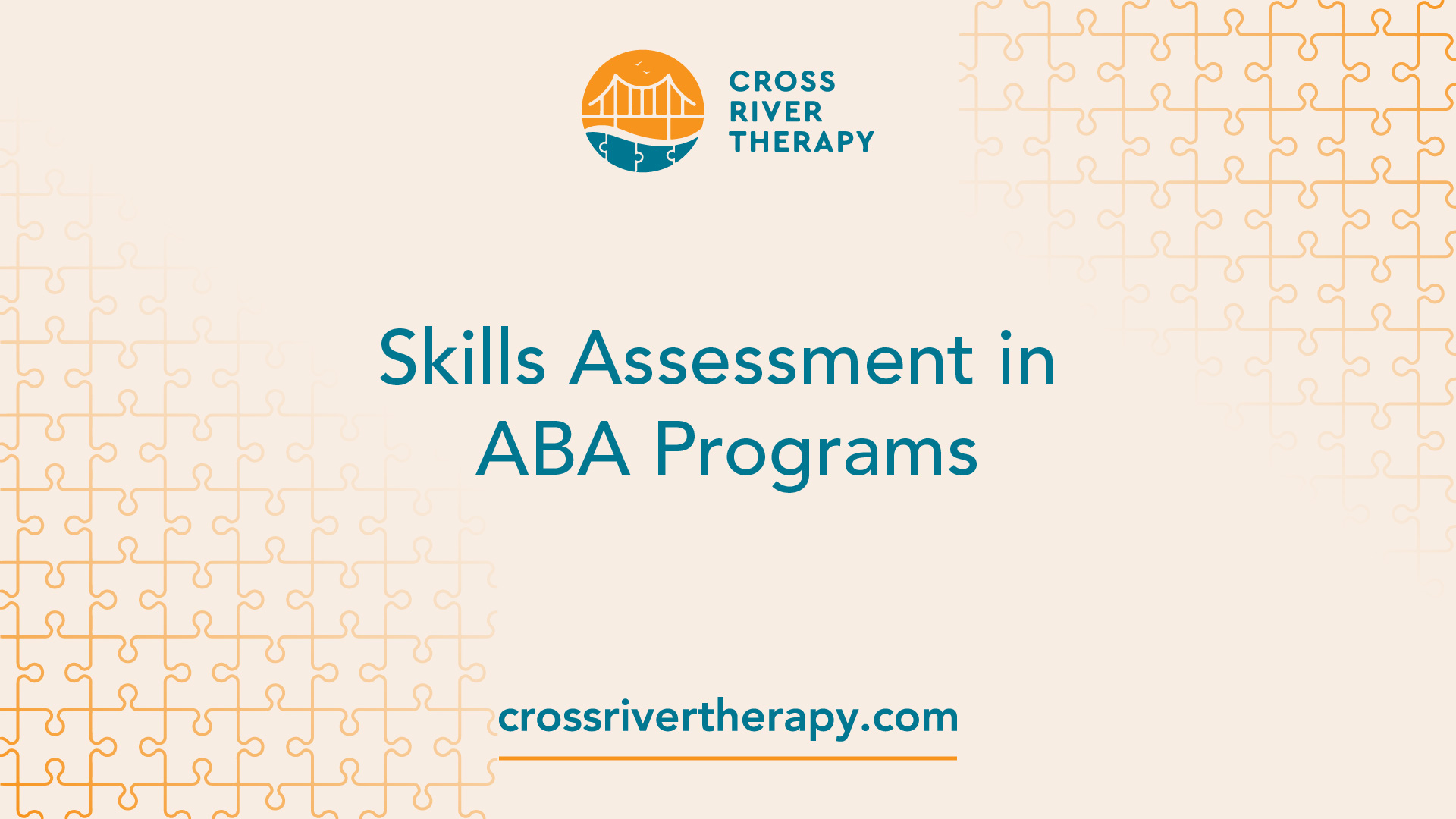Enhancing Executive Functioning with ABA Therapy
Enhance executive functioning for a brighter future.

Understanding Executive Functioning
In the context of ABA therapy, it is important to have a clear understanding of executive functioning. Executive function refers to a set of mental processes that help manage thoughts, actions, and emotions to achieve goals. It encompasses various skills, including planning, organizing, strategizing, paying attention to and remembering details, and managing time and space.
Definition of Executive Function
Executive function involves the cognitive processes that enable individuals to regulate their behavior, make decisions, and problem-solve effectively. It plays a crucial role in goal-directed behavior and the ability to adapt to new situations. Some of the key components of executive function include:
- Working Memory: The ability to hold and manipulate information in mind while performing tasks.
- Cognitive Flexibility: The capacity to switch between different tasks or perspectives.
- Inhibitory Control: The capability to suppress inappropriate or impulsive responses.
- Planning and Organization: The skill to set goals, create strategies, and prioritize tasks.
- Attention: The ability to sustain focus and avoid distractions.
- Verbal Reasoning: The capacity to think and communicate using language effectively.
- Time Management: The skill to allocate and utilize time efficiently.
- Emotional Regulation: The ability to manage and regulate emotions in various situations.
Difficulties in executive functioning can impact individuals with autism, making it challenging for them to focus, follow directions, and regulate emotions. These difficulties can manifest in tasks such as paying attention, organizing, planning, prioritizing, and regulating emotions. It is important to recognize and address these challenges to support individuals in reaching their full potential.
Challenges in Executive Functioning
Individuals with autism often experience challenges in executive functioning. Research suggests that executive functioning disorder may occur in more than 80% of children with autism. Some common executive functioning challenges faced by individuals with autism include:
- Working Memory Deficits: Difficulties in holding and manipulating information in mind, leading to challenges in following multi-step instructions or remembering details.
- Cognitive Flexibility Issues: Struggles in shifting between tasks or adjusting to changes in routines or plans.
- Inhibitory Control Difficulties: Challenges in inhibiting impulsive or inappropriate behaviors, leading to difficulties in self-regulation.
- Communication Challenges: Difficulties in verbal reasoning and expressing thoughts and ideas coherently.
- Planning and Organization Troubles: Problems in setting goals, creating strategies, and organizing tasks, resulting in difficulties in initiating and completing activities.
- Attention Problems: Difficulties in sustaining focus and resisting distractions, leading to challenges in staying on task.
Understanding these challenges is essential for implementing effective ABA therapy strategies to enhance executive functioning skills and support individuals with autism in their daily lives. ABA therapy focuses on improving executive functioning through targeted interventions and customized teaching programs. By addressing executive dysfunction, individuals with autism can develop the skills necessary to navigate daily tasks and achieve their goals.
ABA Therapy for Executive Function

ABA therapy, also known as Applied Behavior Analysis therapy, has shown significant promise in improving executive function skills in children, including those with autism spectrum disorder (ASD). This scientifically-based approach utilizes positive reinforcement to teach new skills and specifically targets areas such as planning, organizing, and time management.
Role of ABA Therapy
ABA therapy plays a vital role in addressing executive functioning challenges in children. By identifying specific executive function deficits, ABA therapists can develop individualized treatment plans that focus on strengthening these areas. Through structured and systematic interventions, ABA therapy aims to improve skills such as:
- Task initiation
- Organization
- Time management
- Planning and problem-solving
- Flexibility and adaptability
- Working memory
By targeting these skills, ABA therapy helps individuals develop strategies and techniques to overcome executive functioning difficulties and enhance overall functioning.
Improving Executive Functioning
ABA therapy employs evidence-based strategies to improve executive functioning in children. Therapists utilize various techniques, such as:
- Task analysis: Task analysis is a fundamental component of ABA therapy that helps therapists and practitioners understand the specific steps required to complete a skill or task. By breaking down complex tasks into smaller, manageable steps, individuals can learn and master new skills more effectively. Task analysis allows therapists to provide step-by-step guidance and reinforcement, promoting skill acquisition and independence.
- Positive reinforcement: ABA therapy utilizes positive reinforcement, such as praise, rewards, and tokens, to encourage desired behaviors and skills. By reinforcing appropriate executive functioning behaviors, such as planning ahead or staying organized, individuals are motivated to engage in these behaviors more consistently.
- Social stories and visual supports: ABA therapists often incorporate social stories and visual supports to enhance executive functioning skills. Social stories provide individuals with clear narratives and visual cues that help them understand social expectations and appropriate behaviors. Visual supports, such as schedules, checklists, and visual reminders, assist individuals in organizing tasks and maintaining routines.
Through these strategies, ABA therapy aims to enhance executive functioning skills, empowering individuals to navigate daily tasks more effectively and achieve greater independence.
ABA therapy offers a comprehensive approach to improving executive function in children. Early intervention is crucial for maximizing the potential of individuals with executive functioning challenges. Seeking professional guidance from experienced therapists in the field can provide valuable support and guidance throughout the therapy journey. To learn more about the benefits of ABA therapy for other areas of development, check out our articles on ABA therapy for self-injurious behaviors, ABA therapy for repetitive behaviors, and ABA therapy for functional communication training.
Importance of Early Intervention
When it comes to addressing executive functioning challenges in children, early intervention is of utmost importance. The impact of early support and seeking professional guidance can greatly contribute to the development of essential skills.
Impact of Early Support
Research has shown that pediatric Applied Behavior Analysis (ABA) therapy, including interventions focused on executive function, has demonstrated significant promise in improving executive function skills in children, including those with autism spectrum disorder (ASD). By providing targeted and individualized support at an early age, children have a better chance of developing and enhancing their executive functioning skills.
Early support can make a positive impact on a child's ability to plan, organize, problem-solve, and engage in goal-directed behaviors. It helps them develop the skills necessary for academic success, social interactions, and independent living.
Seeking Professional Guidance
When it comes to addressing executive dysfunction in children, seeking professional guidance is crucial. ABA therapy, with its focus on teaching and improving skills related to executive functioning, can provide effective strategies and interventions to support children in managing tasks and behaviors in their daily lives [5].
Experienced therapists at ABA therapy centers, such as Chicago ABA Therapy and Award Behavioral Health, can offer guidance, support, and evidence-based interventions to address executive functioning challenges in children.
By seeking professional guidance, parents can receive a comprehensive assessment of their child's executive functioning skills and develop an individualized treatment plan tailored to their specific needs. A qualified behavior analyst will work closely with the child and their family to implement interventions that target specific behaviors related to executive functions.
Early intervention, combined with the expertise and guidance of professionals, can pave the way for improved executive functioning skills in children. It is essential to reach out to reputable ABA therapy centers to explore the available options and provide children with the support they need to thrive and succeed.
Skills Assessment in ABA Programs

In ABA (Applied Behavior Analysis) programs, conducting thorough skills assessments is an essential step in understanding an individual's strengths and areas of need. These assessments help determine the specific skills that require intervention and guide the development of targeted treatment plans. When selecting the right assessment, it's important to consider reliability, validity, cultural appropriateness, and alignment with individual needs and goals.
Selecting the Right Assessment
When choosing a skills assessment for an ABA program, it's crucial to consider several factors. The assessment should be reliable, meaning it consistently produces accurate results. It should also be valid, meaning it measures what it intends to measure. Ease of administration and cultural appropriateness are additional considerations to ensure the assessment is appropriate for the individual's background and circumstances.
There are various skills assessments available, and some are specifically designed for individuals on the autism spectrum. For example, the Verbal Behavior Milestones Assessment and Placement Program (VB-MAPP) and the Assessment of Basic Language and Learning Skills (ABLLS-R) are commonly used assessments for autistic learners. These assessments may also be suitable for individuals with other developmental or communication delays [6].
It is often beneficial to use multiple assessments simultaneously to gather a comprehensive profile of an individual's skills. However, it's important to ensure that the assessments used are compatible and complement each other in order to avoid redundancy and obtain a well-rounded understanding of the individual's abilities.
Importance of Validated Assessments
To ensure the effectiveness of ABA therapy, it is essential to use assessments that have been validated through rigorous research studies. Validated assessments have published evidence supporting their reliability and validity. These assessments are considered evidence-based and provide a solid foundation for developing individualized treatment plans.
Periodic reassessment of skills is also crucial in ABA programs to track progress and make data-driven decisions about intervention planning. Insurance funders often require skills reassessments every six months to ensure ongoing progress and appropriate allocation of resources.
By selecting the appropriate skills assessments and ensuring their validity and reliability, ABA practitioners can accurately identify the areas of executive functioning that require intervention. These assessments serve as a guide for developing tailored treatment plans that address the specific needs of individuals with executive functioning challenges.
Implementing Task Analysis
In the context of ABA therapy, task analysis plays a crucial role in breaking down complex skills into smaller, manageable steps. This process allows therapists and practitioners to understand the specific steps required to complete a skill or task, making it easier for individuals to learn and master new skills.
Role of Task Analysis
Task analysis is a fundamental component of ABA therapy that provides a systematic and evidence-based approach to skill acquisition. By breaking down skills into smaller steps, individuals receiving therapy can focus on one component at a time, reducing overwhelm and promoting successful learning experiences.
By implementing task analysis, therapists can effectively teach a wide range of skills, including daily living skills, communication skills, and social skills. This approach allows for individualized instruction tailored to the abilities and learning styles of individuals. It provides a clear roadmap for teaching those skills systematically, ensuring that each step is mastered before moving on to the next.
Customized Teaching Programs
Task analysis enables therapists to create customized teaching programs that are tailored to the unique needs and abilities of each individual. These programs help identify specific skills that need to be targeted and break them down into smaller, achievable steps.
By following a task analysis-based teaching program, individuals receiving ABA therapy can make progress in a structured and organized manner. The individualized nature of these programs ensures that therapy is tailored to the specific goals and areas of focus for each individual. This approach allows for a more effective and efficient learning experience, promoting independence and overall success.
In conclusion, task analysis is an essential tool in ABA therapy for enhancing executive functioning. By breaking down skills into manageable steps, therapists can provide structured and individualized instruction, promoting successful learning experiences and overall skill acquisition. Through customized teaching programs based on task analysis, individuals receiving ABA therapy can make significant progress in various areas of their lives, fostering independence and overall success.
Addressing Executive Dysfunction
Executive dysfunction can have a significant impact on daily tasks, making it challenging for individuals to effectively navigate various aspects of their lives. This section will explore the impact of executive dysfunction on daily tasks and provide techniques for improvement.
Impact on Daily Tasks
Difficulties in executive function can hinder focus, following directions, and emotional regulation, impacting tasks such as paying attention, organizing, planning, prioritizing, and regulating emotions for individuals with autism [2]. These challenges can manifest in various ways, including:
- Organization: Difficulties in organizing tasks, materials, and thoughts can lead to increased confusion and reduced productivity. This can make it challenging to complete assignments, maintain a tidy living space, or keep track of important documents.
- Time Management: Executive dysfunction can make it difficult to estimate time accurately and effectively allocate it to different tasks. This can result in difficulties meeting deadlines, being punctual, and managing daily routines.
- Working Memory: Working memory plays a crucial role in holding and manipulating information in mind. Challenges with working memory can impact problem-solving abilities, comprehension, and task completion.
- Planning and Problem-Solving: Difficulties in executive functioning can hinder the ability to create and follow through with effective plans, leading to challenges in problem-solving, decision-making, and achieving long-term goals.
Techniques for Improvement
Addressing and improving executive dysfunction is possible through various techniques and strategies. Here are some techniques that can help individuals enhance their executive functioning skills:
- Visual Supports: Visual supports, such as visual schedules, checklists, and calendars, can aid in organizing tasks, managing time, and providing a visual representation of routines and expectations. These supports can serve as reminders and help individuals stay on track.
- Breaking Tasks Down: Breaking complex tasks into smaller, manageable steps can make them more approachable. This technique, known as task analysis, allows individuals to focus on one step at a time, reducing feelings of overwhelm and improving task completion.
- Using Tools and Technology: Utilizing various tools and technology can support executive functioning. For example, smartphone apps with reminders and timers can assist with time management and organization. Note-taking apps and digital planners can help individuals stay organized and remember important information.
- Implementing Routines: Establishing consistent routines and structures can provide predictability and support executive functioning. Having set times for specific activities, such as mealtimes, homework, and bedtime, can help individuals better manage their time and reduce decision-making fatigue.
By implementing these techniques and strategies, individuals with executive dysfunction can improve their ability to navigate daily tasks more effectively. It is important to note that the specific techniques may vary depending on individual needs and preferences. Seeking guidance from professionals, such as ABA therapists, can provide personalized strategies and support to address executive dysfunction effectively.
Addressing executive dysfunction is a journey that requires patience, practice, and ongoing support. With the right techniques and guidance, individuals can develop strategies to overcome challenges and enhance their executive functioning skills, leading to increased independence and success in daily life.
References
[1]: https://chicagoabatherapy.com/resources/articles
[2]: https://www.myteamaba.com/resources/executive-functioning-challenges-in-autism
[3]: https://www.myabatherapy.com/executive-functioning
[4]: https://www.adinaaba.com/post/task-analysis-in-aba-therapy
[5]: https://theplaceforchildrenwithautism.com/applied-behavior-analysis-for-autism/
[6]: https://masteraba.com/assess-with-confidence-how-to-select-the-ideal-assessment-for-aba-programs/



